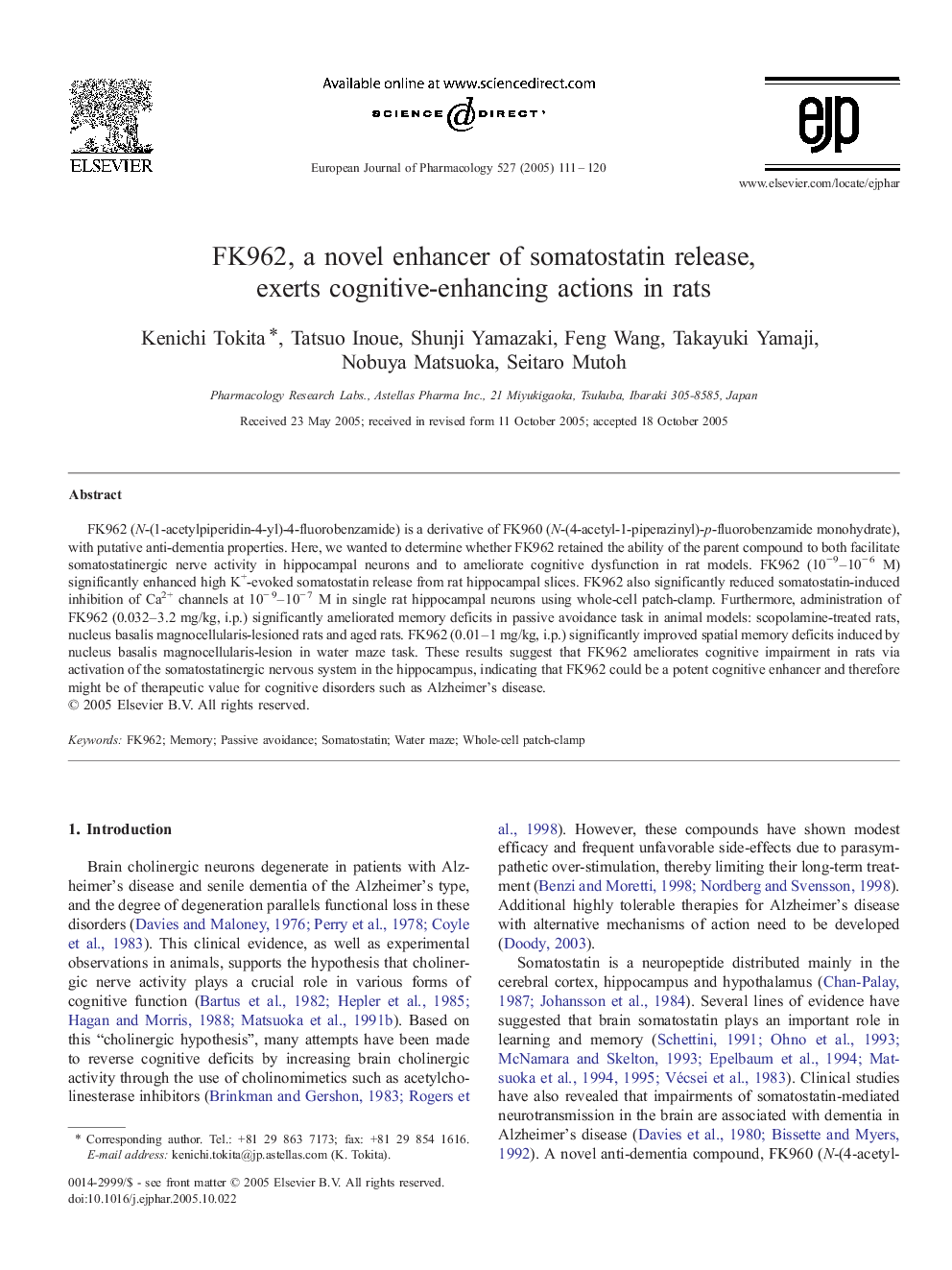| Article ID | Journal | Published Year | Pages | File Type |
|---|---|---|---|---|
| 9920940 | European Journal of Pharmacology | 2005 | 10 Pages |
Abstract
FK962 (N-(1-acetylpiperidin-4-yl)-4-fluorobenzamide) is a derivative of FK960 (N-(4-acetyl-1-piperazinyl)-p-fluorobenzamide monohydrate), with putative anti-dementia properties. Here, we wanted to determine whether FK962 retained the ability of the parent compound to both facilitate somatostatinergic nerve activity in hippocampal neurons and to ameliorate cognitive dysfunction in rat models. FK962 (10â9-10â 6 M) significantly enhanced high K+-evoked somatostatin release from rat hippocampal slices. FK962 also significantly reduced somatostatin-induced inhibition of Ca2+ channels at 10â 9-10â 7 M in single rat hippocampal neurons using whole-cell patch-clamp. Furthermore, administration of FK962 (0.032-3.2 mg/kg, i.p.) significantly ameliorated memory deficits in passive avoidance task in animal models: scopolamine-treated rats, nucleus basalis magnocellularis-lesioned rats and aged rats. FK962 (0.01-1 mg/kg, i.p.) significantly improved spatial memory deficits induced by nucleus basalis magnocellularis-lesion in water maze task. These results suggest that FK962 ameliorates cognitive impairment in rats via activation of the somatostatinergic nervous system in the hippocampus, indicating that FK962 could be a potent cognitive enhancer and therefore might be of therapeutic value for cognitive disorders such as Alzheimer's disease.
Related Topics
Life Sciences
Neuroscience
Cellular and Molecular Neuroscience
Authors
Kenichi Tokita, Tatsuo Inoue, Shunji Yamazaki, Feng Wang, Takayuki Yamaji, Nobuya Matsuoka, Seitaro Mutoh,
